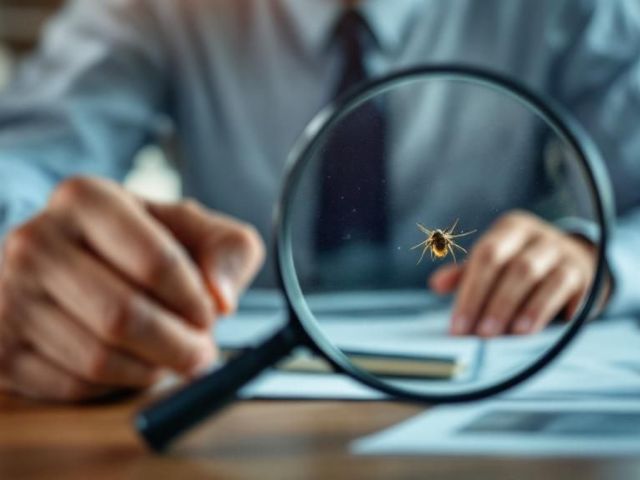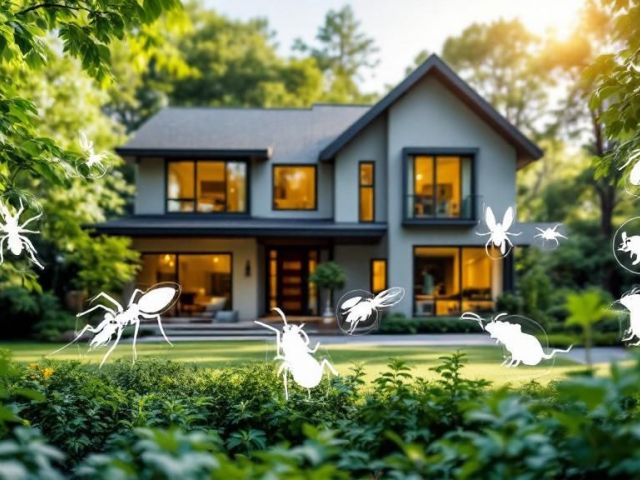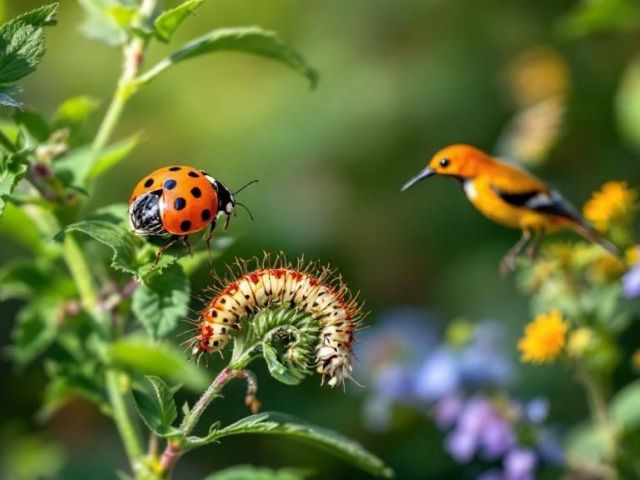Eco-friendly Rodent Control Solutions
Key Takeaways
-
Eco-friendly rodent management minimizes environmental impact while addressing infestations.
-
Natural deterrents, humane traps, and exclusion methods are central to sustainable pest strategies.
-
Integrated Pest Management (IPM) blends multiple approaches for long-term success.
-
These methods are safer for families, pets, and the broader ecosystem.
-
Expert pest control providers, such as DOA Pest Service, offer eco-conscious plans tailored to local conditions.
As concerns about toxic chemicals and environmental sustainability grow, homeowners in Tennessee are turning to greener, safer ways to manage common pest problems—especially rodents. From the urban streets of Nashville to the quieter rural stretches beyond, eco-friendly rodent control is gaining momentum. But what exactly does that look like in practice?
This article breaks down the science, strategy, and solutions behind environmentally responsible rodent control—and why it could be the right choice for your home.
What Does Eco-Friendly Rodent Control Really Mean?
Eco-friendly rodent control focuses on reducing harm to people, pets, and the environment while still managing pest populations effectively. Instead of relying solely on toxic baits or chemical poisons, this approach uses:
-
Natural deterrents (peppermint oil, garlic, or cayenne sprays)
-
Physical barriers (caulking, mesh screens, door sweeps)
-
Mechanical traps (snap traps, catch-and-release traps)
-
Exclusion techniques (sealing entry points, removing attractants)
-
Biological methods (natural predators, fertility control)
The goal is not just eradication, but prevention, safety, and long-term harmony with the surrounding ecosystem.

Why Tennessee Homes Are Ripe for Rodent Activity
Tennessee’s changing seasons and mix of urban/suburban development make it a hotspot for rodents. Rats and mice often seek shelter as temperatures drop or when outdoor food sources become scarce.
-
60% of US homes have experienced rodent issues at some point.
-
Nashville’s spring warming brings a surge in pest activity, while winters drive rodents indoors.
-
Rodent exclusion is one of the most effective preventative strategies during seasonal transitions.
Rodents not only chew through wires, drywall, and insulation, but also contaminate food and spread diseases. Addressing these risks in a sustainable way ensures both safety and peace of mind.
Comparing Traditional vs. Eco-Friendly Rodent Methods
Traditional Methods:
-
Depend on rodenticides (toxic baits)
-
Can harm non-target animals (pets, birds of prey)
-
May lead to secondary poisoning
-
Not always effective due to bait resistance or behavioral adaptation
Eco-Friendly Methods:
-
Focus on prevention and humane elimination
-
Pose fewer risks to children and pets
-
Preserve natural predator populations
-
Better suited for long-term rodent population control
Many modern pest control companies, including DOA Pest Service, are adopting these low-toxicity methods to keep homes safe without sacrificing effectiveness.
Integrating IPM: The Smart, Sustainable Approach
Integrated Pest Management (IPM) is a holistic strategy that combines multiple tactics based on observation, identification, and targeted control. In rodent management, it includes:
-
Assessment: Identifying the species, behavior, and entry points
-
Prevention: Using barriers, repairs, and sanitation to reduce access
-
Mechanical Control: Traps or exclusion devices
-
Monitoring: Ongoing checks to measure success and adjust as needed
IPM not only solves today’s rodent problem but prevents future infestations without relying on chemicals.

Lesser-Known but Effective Eco-Friendly Tools
Tennessee homeowners are increasingly using:
-
Ultrasonic repellents: Emit frequencies unpleasant to rodents but safe for humans
-
Natural rodent birth control: New products inhibit rodent reproduction to reduce populations over time
-
Predator encouragement: Owls, snakes, and outdoor cats can help regulate rodent numbers naturally
These approaches are especially useful in areas where poison-based methods might pose environmental or safety risks.
Why Professional Support Still Matters
Eco-friendly doesn’t mean you have to do it alone. Rodent control requires expertise, especially when dealing with hard-to-reach infestations, persistent entry points, or large properties. Licensed pest control professionals:
-
Conduct detailed inspections
-
Recommend low-toxicity or non-toxic options
-
Apply humane methods at scale
-
Ensure compliance with local pest regulations
Providers like DOA Pest Service are equipped to offer these solutions while balancing safety, efficacy, and environmental responsibility.
Smart Prevention Tips for Tennessee Homes
Eco-conscious rodent control starts with smart habits. Here’s how to keep rodents out while staying green:
-
Seal cracks and gaps with steel wool or silicone caulk
-
Keep outdoor food sources (pet food, birdseed) sealed or elevated
-
Use motion-activated lights to deter night activity
-
Store firewood and compost away from the house
-
Eliminate standing water where rodents may drink
Combine these steps with regular monitoring for signs like droppings, gnaw marks, and scratching noises.
Rethinking What It Means to Be Pest-Free
In the past, pest control meant eradicating every unwanted critter with the strongest product on the shelf. But today, it’s about balance. True pest control means:
-
Addressing the root cause of infestations
-
Preventing harm to non-target species
-
Protecting your family without harsh chemicals
As more Tennessee families seek healthier living environments, eco-friendly rodent control offers a future-forward solution. And when it counts most, expert help from teams like DOA Pest Service ensures that sustainability and effectiveness go hand-in-hand.
Frequently Asked Questions
What are eco-friendly rodent control methods?
They involve natural deterrents, exclusion techniques, and humane traps rather than toxic poisons.
Are eco-friendly methods safe for pets and children?
Yes. These solutions avoid harmful chemicals, making them safer for families.
Do these methods work as well as traditional ones?
In many cases, yes. Especially when combined in an Integrated Pest Management plan.
Is professional pest control still necessary?
Yes. Experts can diagnose the issue, apply safe solutions, and help prevent future infestations.
Can I switch to eco-friendly pest control if I’ve used chemicals before?
Absolutely. Many homeowners transition to greener methods after learning about the long-term benefits.









